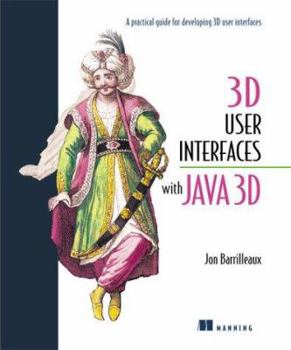3D User Interfaces with Java 3D
Select Format
Select Condition 
Based on Your Recent Browsing
Book Overview
3D User Interfaces with Java 3D is a practical guide for providing next-generation applications with 3D user interfaces for manipulation of in-scene objects. Emphasis is on standalone and web-based business applications, such as for online sales and mass customization, but much of what this book offers has broad applicability to 3D user interfaces in other pursuits such as scientific visualization and gaming. This description may be from another edition of this product.
Format:Paperback
Language:English
ISBN:1884777902
ISBN13:9781884777905
Release Date:January 1
Publisher:Manning Pubns Co
Length:528 Pages
Weight:1.95 lbs.
Dimensions:9.0" x 1.0" x 7.0"
Related Subjects
Computer Science Computers Computers & Technology Education & Reference Java Languages & Tools Mathematics Object-Oriented Design Object-Oriented Software Design Programming Programming Languages Science & Math Servlets Software Design & Engineering Software Design, Testing & Engineering Software Development Web Design Web Development & DesignCustomer Reviews
5 customer ratings | 5 reviews
There are currently no reviews. Be the first to review this work.





















